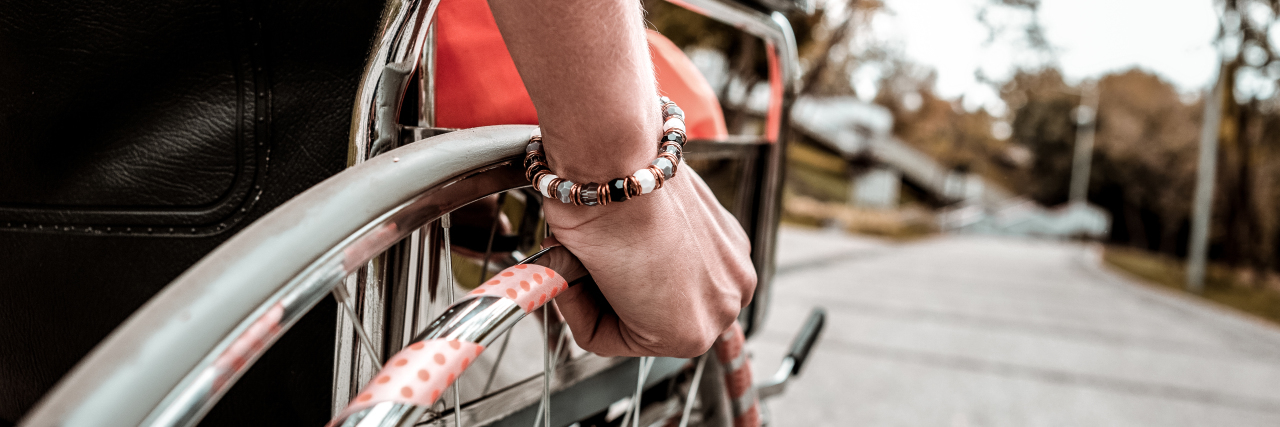In the wake of the Weinstein scandal among others, the #MeToo movement has highlighted just how many women have been forced to internalize their own experience of sexual harassment, abuse or even rape as merely “the way of things.” Now more than ever, there is a need for dialogue around what constitutes appropriate behavior. As a person with a disability, the notion of consent extends beyond the boundaries of traditional intimacy.
I receive help with a variety of tasks on a daily basis, whether it be from a carer, a family member or a friend. Quite often though, I find myself relying on perfect strangers. Thankfully, my vulnerability has largely served to bring forth kindness. Many people are willing to assist in any way possible. Truth be told, some can be a little too eager. This positive energy is great, but it must be channeled correctly for the benefit of both parties. In order to be more respectful and/or useful, please consider the following.
1. Approach with caution.
First impressions matter. Introduce yourself. No matter how much someone appears in need of assistance, there is always time for a quick hello. I’m always more likely to ask for help from somebody if I feel like I know them on some level. If we’ve already met, be aware that greetings can be a mind-field. Shout my name or sneak up behind me and my startle reflex kicks in, with disastrous effects. A head on-approach is better, so as to be seen and heard. Often, I will opt to smile and nod. Handshakes can be tricky when you have poor grip; balance issues mean when you wave, you wobble. As much as I love
hugs, they are usually reserved for close friends, who are prepared to hold me up in the process.
2. Treat me as you want to be treated.
Though I might look young and struggle with some simple stuff, I am not a child. A disability is not a license to invade my personal space without permission. Indeed, those of us with disabilities may need extra space to maneuver or get comfortable. For all intents and purposes, my mobility aids are an extension of my body. They allow me the freedom to choose where I go and with whom. As a manual wheelchair user, while I might appreciate a push up a hill on a wet and windy day, the same cannot be said for every scenario. Check with me before you decide my next destination — don’t push my wheelchair without asking. Good intentions cease to matter when I’m uncomfortable.
As for my crutches? Leave them near me unless told otherwise. I might be sitting down now, but I am as entitled to move as the next person and might do so within minutes. Don’t ever withhold mobility aids from somebody with a disability. Not only is such behavior despicable, it is damaging and dangerous. Hiding medical equipment (even glasses!) is not a suitable practical joke and should never be used as punishment. Taking away my assistive devices will not make me walk unaided. It will make me fall and hurt myself.
3. Follow my lead.
Everyone is different. Nobody in the world knows my body like I do. Every day is different; I’m constantly learning and adjusting. Sometimes I will need more help than usual due to fatigue, pain, time constraints etc. If I need help, I won’t hesitate to ask. I have fallen down countless times and am still standing. This is not a coincidence. Falling is the norm for me. After 20 years with cerebral palsy, my parents have developed lightning reflexes to catch me before I hit the ground. Nonetheless I am well prepared.
It’s better for all concerned if typical bystanders let it happen and support me in the aftermath instead. Please know it’s OK if I don’t get up right away. I do everything at my own pace; falling is no different. Pulling me up before I’m ready might result in further hurt. It takes time to assess injuries and figure out the best way to get vertical again. If I require help, I’ll give clear instructions, which you should follow to the letter.
Our bodies behave differently; this isn’t necessarily an indication that something is wrong. For many people with disabilities, the likes of numbness, joint pain or sensory issues are nothing out of the ordinary.
4. Don’t take offense.
There will always be times when I turn down an offer of help. I know my own mind, as well as my own body. I am capable of many things; I know instinctively when I’m not coping. Part of respecting my decision in the moment is treating it as just that. Be aware I might ask for help tomorrow with the same task, or later that day with a different one. Know that if help isn’t taken on my terms, it becomes a hindrance. If you’re debating about stepping in, strike up a conversation and ask me. Worst case scenario, I’ll politely decline your offer and you will be free to go about your day as normal. Please understand that I am not stubborn or ungrateful. I could take your help for granted no more than I could disregard my own hard-won independence.
Getty image by Yakobchuk.

